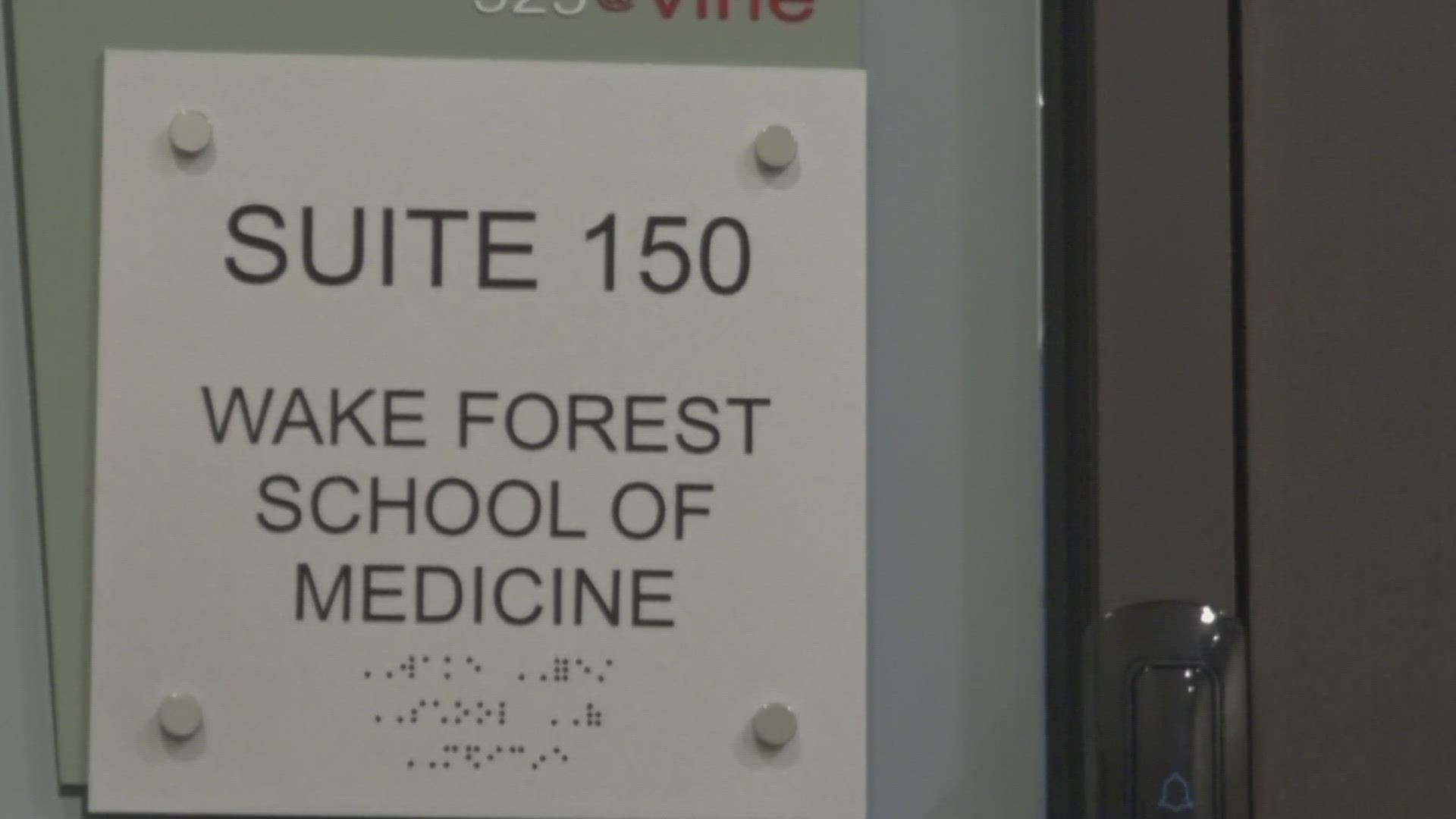THOMASVILLE, N.C. — Access to healthcare in rural areas can be a struggle, but a new investment could change that.
Wake Forest University School of Medicine will use grant money to work with doctors to find solutions.
There are many factors that have led to declining health In people in rural communities.
One of them is a lack of physicians - and it's having a trickle-down effect.
Frank Everhart has worked in the medical field for more than a decade.
He's made it his mission to help uninsured patients get their health back on track.
"The appreciation we see In them is humbling," Everhart said.
On a typical day, Everhart sees about 18 patients at Davidson Medical Ministries in Thomasville.
"I have patients who come as far as Denton and Mocksville a couple in Level Cross," Everhart said. "Some patients will come in and they haven't had their meds in two or three months or they've gone years without having seen someone."
Everhart said Medicaid qualifications or 2-hour-bus commutes often prevent patients from seeking help.
That's why they're introducing a mobile unit at the start of the year, to see people where they live.
But finding doctors willing to work in small towns is a struggle across America.
Studies show the United States is on track to be short 124,000 physicians by 2034.
That could hit rural counties like Davidson hard.
"We've had positions that have been open that it takes longer to fill because we are in a rural community," Everhart said. "Eventually, we'll find someone but they're traveling from the urban areas to the rural areas to provide care. We're thankful they're here but it makes it more difficult for that attraction."
To turn this projected trend around Wake Forest University School of Medicine will use a new $445,000 grant to study and understand why there's a lack of physicians and come up with incentives and policies that would attract more clinicians to rural counties.
"The cost and burden on emergency rooms would help alleviate a lot of that it would be exciting having someone local close in the community," Everhart said.
Everhart is an example of a much-needed physician rooted in the community.
"Being in a smaller town it's like treating family," Everhart said.

